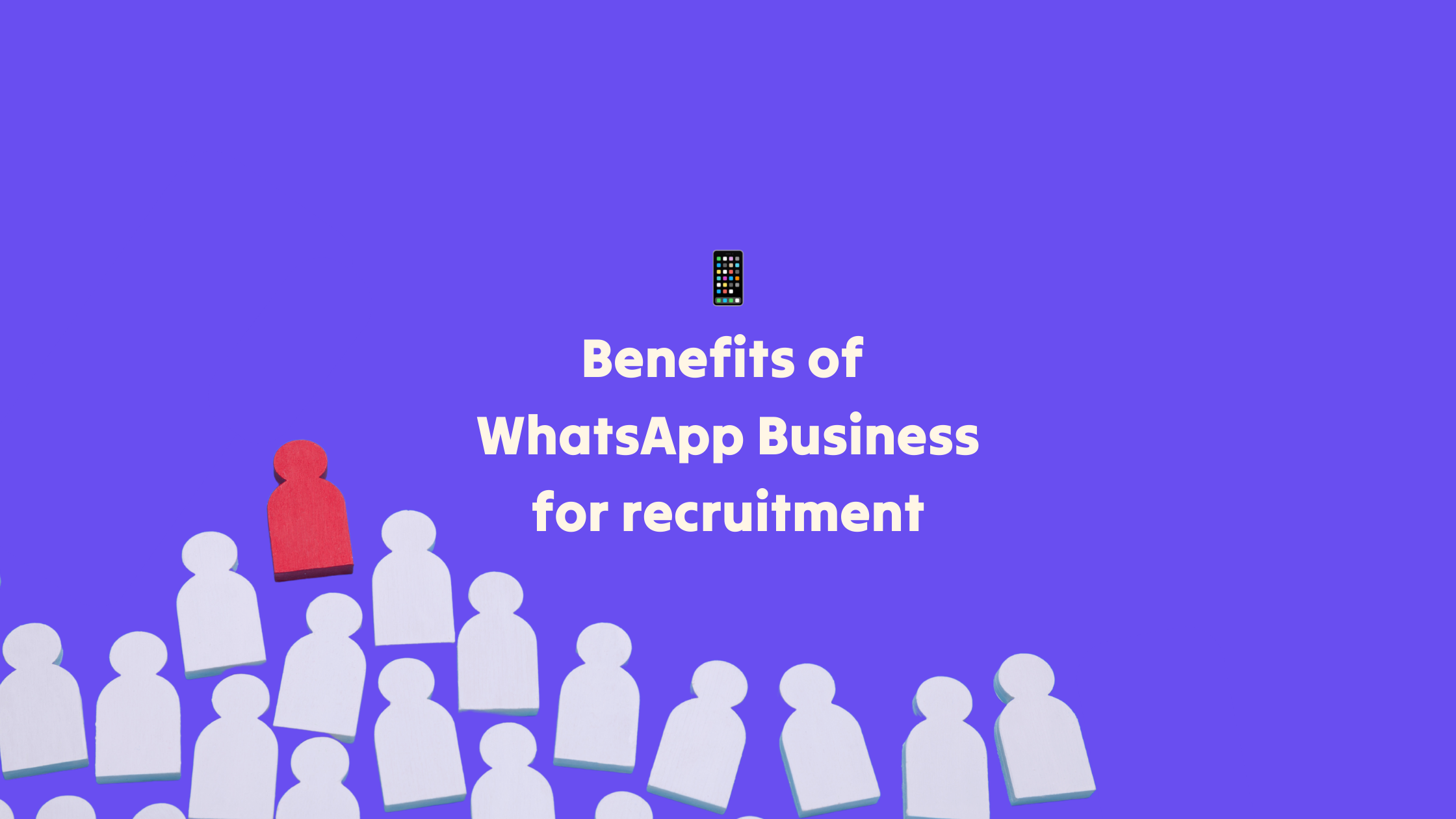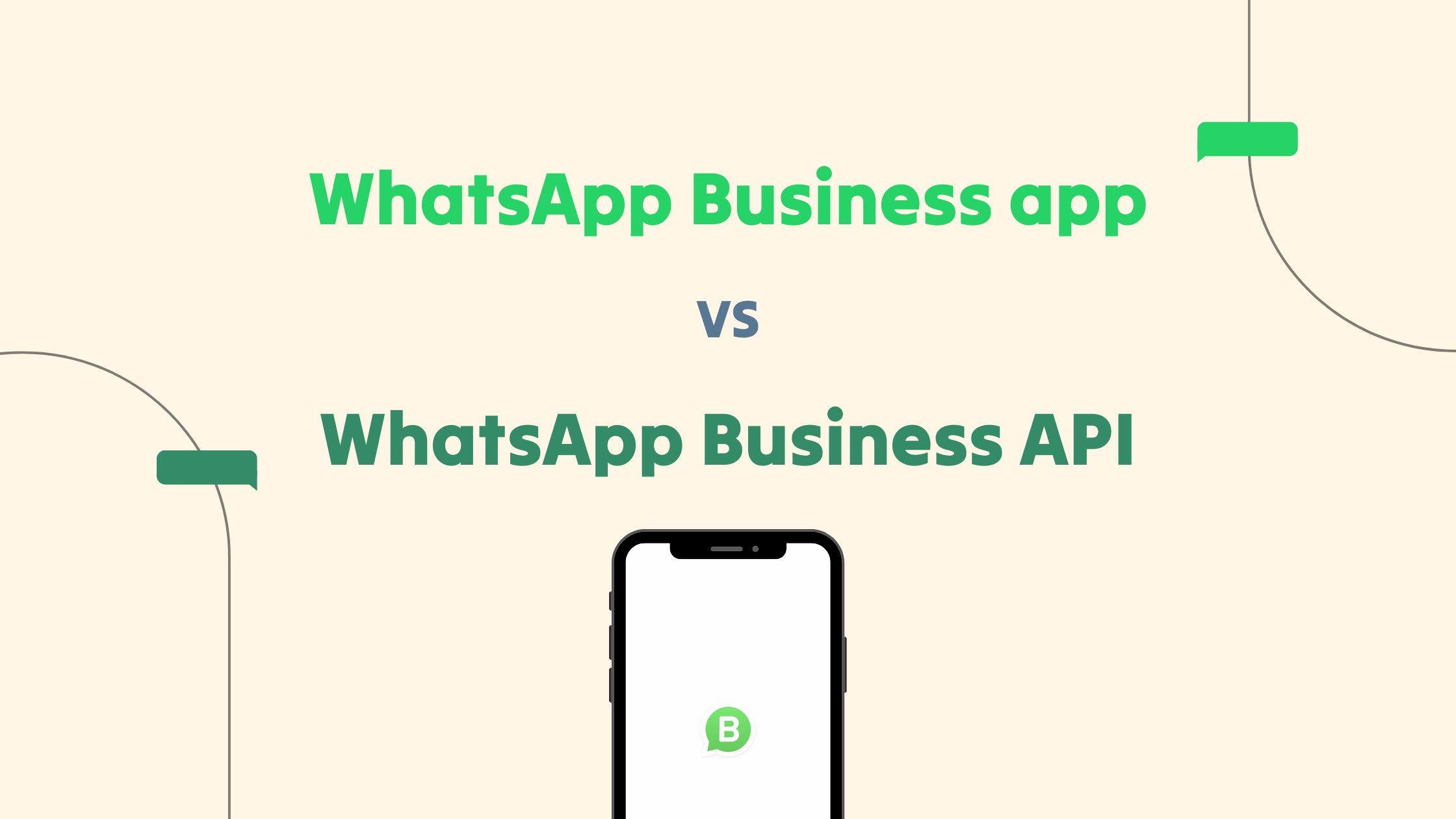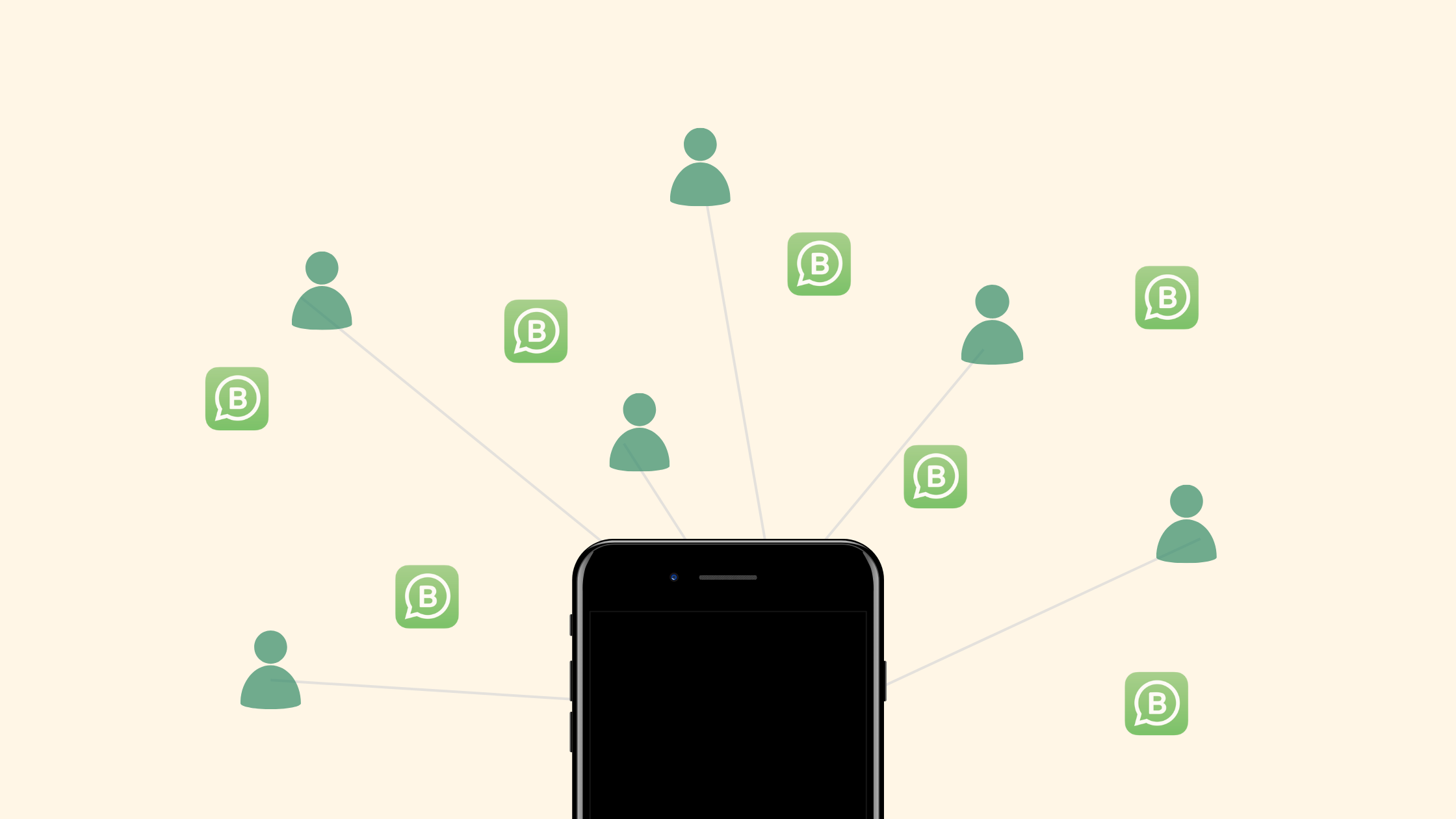Benefits of Using WhatsApp Business in Recruitment
| By Kim Hoang | 0 Comments

WhatsApp boasts over 2 billion users worldwide, making it one of the most popular and fast-growing communication platforms. The sister platform is WhatsApp Business. It’s designed for businesses to connect with their customers in a personalised manner and bring their business to new audiences. WhatsApp Business’ many benefits also makes it an effective tool for recruiters to leverage, in order to tackle the challenges faced in the competitive world of recruitment.
Key messaging features of WhatsApp Business
- Real-time messaging with customers
- Sharing attachments with messages eg. .pdf, .doc, .jpg etc
- Voice notes
- Creating WhatsApp groups
How do recruiting and WhatsApp Business go together?
There are many ways the benefits of WhatsApp Business can be leveraged as a solution to the challenges in recruitment:
Challenge 1: Sourcing the right talent
The most common avenues of talent acquisition are heavily oversaturated. This makes it hard for recruiters to source the right candidates. Meaning many have turned to social channels for their search.
WhatsApp’s group feature is great for finding ideal candidates. There are many groups specifically for recruiters where you can share job listings and others can refer you to relevant candidates. Additionally, you can find talent in groups for candidates looking for specific roles too e.g. sales job search group chats. This will increase the chances of finding the right fit for a role as you are able to quickly target the relevant talent pool.
WhatsApp Business allows you to directly reach out to candidates and share the job listing with them instantly. The real time messaging nature of WhatsApp also means you are able to answer any questions the candidates may have promptly.
Challenge 2: Time constraints
Recruitment is highly competitive. Traditionally recruitment cycles take roughly 27 days [1]. Meaning if a candidate cannot be secured within 2-3 weeks, you’re at risk of losing the candidate to a competitor. Therefore shortening the hiring process where possible is key to securing top talent and staying ahead of the competition.
WhatsApp Business supports instant communication so you waste no time. Upon sending job listings to potential candidates, you’ll be able to very quickly determine their level of interest and relevant qualifications. This allows recruiters to make quick, informed decisions and move the hiring process along more efficiently.
Additionally, taking a conversational approach helps to build rapport with potential candidates. Thereby increasing the chances of them accepting a job offer. By leveraging the speed and convenience of WhatsApp Business, recruiters can improve their recruitment outcomes and secure talent in a timely manner.
Challenge 3: Employer branding
Selling a job to a candidate goes beyond sharing the job listing. Let’s be real, the job search process is tedious. Therefore it’s important for recruiters to find creative and innovative ways to present an employer’s culture and values in order to attract talent.
Through WhatsApp, recruiters can share multimedia content with candidates. This allows recruiters to build a strong employer brand and make the company more attractive to potential candidates. By sharing information about the company in an engaging way, you can capture the attention of candidates and showcase what makes the company unique.
Furthermore, the conversational nature you can take on WhatsApp allows for a more personalised approach. Recruiters can create a dialogue with candidates to understand their needs and preferences, and tailor their messaging accordingly. This helps candidates feel heard and valued, leading to building stronger connections and increased chances of a job offer being accepted.
Challenge 4: Talent retention
Recruiters know the recruitment cycle doesn’t end at a successful hire. Retaining talent is a significant challenge faced by recruiters and employers. There are misconceptions that it is the responsibility of the employer to manage. However recruiters can and should be providing ongoing support to the candidates they’ve successfully placed following on-boarding.
Recruiters can use WhatsApp Business to keep in touch with new employees and provide guidance, helping them to navigate their career paths and identify opportunities for growth within the company. Regular check-ins and performance evaluations can help to identify any issues or concerns early on, allowing for timely intervention and resolution.
This also provides a channel for direct feedback regarding the recruitment process. New hires can share valuable insight into their hiring experience, allowing you to create open and friendly dialogue to resolve any concerns. You can then use this information to improve your services and optimise future recruitment processes through WhatsApp Business.
Challenge 5: Unorganised applicant tracking
Recruiters often face the challenge of managing the overwhelming volume of candidate outreach they need to do on a daily basis. You’ll need to use an applicant tracking system to stay on top of each active lead.
A great feature of WhatsApp Business is the ability to integrate it with your applicant tracking system to automate the process of recording and tracking candidate communication. By automating this process, recruiters can save time and significantly reduce the hiring timeline with organised management of candidate communication.
Additionally, integrations with an applicant tracking system can help to improve candidate experience as you can send reminders and notifications regarding job interviews, assessment days etc. This helps to efficiently move the hiring process along leading to faster and higher chances of successful outcomes. To do this, you’d need to consider getting the WhatsApp Business API – a separate service instead.
In today’s competitive job market, recruiters need every advantage they can get to find and attract the best candidates. WhatsApp Business is more than just a communication platform – it’s a game-changing tool that can positively impact your recruitment process. WhatsApp Business is a must-have for any recruiter looking to achieve more successful outcomes. Make use of the benefits WhatsApp Business has to offer for recruitment, so you don’t get left behind in the race for talent!
References:
[1] https://officevibe.com/blog/12-recruiting-stats




